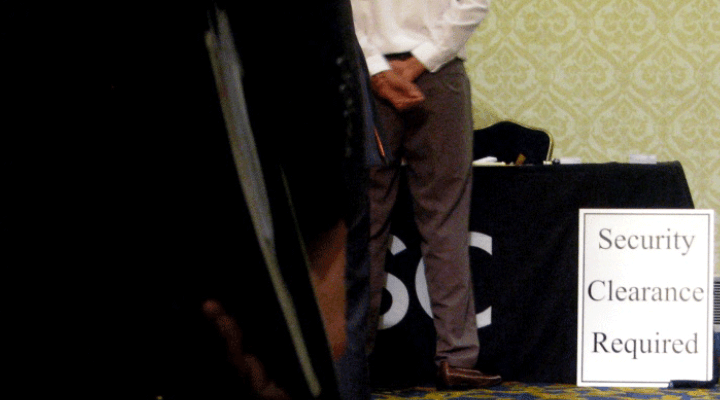From college students to transitioning veterans, at some point in your career, you’ll most likely attend a job fair. Recruiters can speak to hundreds of people in a day, so you’ll want to do your best to be remembered.
Maneuvering around a large room can feel challenging, especially if you are not the most outgoing person. But with just a few easy steps, you can be prepared and look like you own the room.
Tips to Increase Your Job Fair Success
Register and Upload Your Resume Before the Job Fair:
Depending on the job fair, recruiters may receive access to the resumes prior to the interview. They can also have access to resumes afterwards as well. Having your resume searchable will increase your visibility.
Attend the Free Events:
Many job fairs offer free career workshops or seminars. This is a great opportunity to gather insight to assist you in your job search.
Have a Game Plan:
Typically, career fairs are busiest during the lunch hour and when they first open. They also close at the publicized times to accommodate employers’ travel arrangements. Come prepared to make the best use of your time. Research participating companies in advance. Visit their career website to see what sparks your interest and then make a list of the priority companies with whom you want to speak. Prepare a strategy for each employer you visit. Which positions are of interest to you? What specific information can you gather to make the best use of your time with the few minutes you have with the recruiters. Make your time count.
Prioritize the Companies in Order of Your Interest:
When you arrive, grab a map and take a few minutes to review it. Some job fairs are large and it can take several hours if you visit each table. Visit the companies you want to speak with first. But don’t stop there. Allow extra time to speak with other organizations as well, because you never know where you’ll find a good match.
Figure Out What You Need to Bring:
Bring at least 20 copies of your resume to hand out – more if it is a larger job fair. Many employers prefer that you apply online but if someone asks for a resume, you’ll want to be prepared. Also consider bringing a portfolio, a large tote bag, briefcase or something similar. You will want to have access to your resumes easily without fumbling around. You will also want to have a place to carry the information you receive from the tables you visit.
Take Notes:
Bring a notebook or use your smartphone to jot down any key facts that you want to remember later. Recruiters should have business cards on hand so be sure you grab one for ease of follow up after the job fair.
Practice Your Elevator Pitch:
Recruiters may only have a few minutes to speak to you so have a stellar 30-second introduction prepared that hooks them with something unique about you. This speech is all about you: who you are, what you do, and what you want to do. Your elevator pitch is a way to share your expertise and credentials quickly and effectively. If you know what positions they have open in advance, you can tailor your pitch to that.
Strike Your Power Pose:
Projecting authority and status is a critical element to your nonverbal strategy that gets you noticed. Stand tall, hold your head high, push your shoulders back, and keep your rib cage up. This posture helps you project a sense of self-confidence.
Watch Your Non-Verbal Language:
Actions speak louder than words, so allow your non-verbal language to help to deliver your message. People can pick up all sorts of cues from your nonverbal behavior, so it is important to send the right ones. When you meet someone for the first time, shake hands and introduce yourself using your first and last name. Then, use their name while speaking with them. They love it. It makes them feel good.
Listen Effectively and Mirror Behavior:
Don’t listen with the intent to respond but rather with the intent to understand. That facilitates the flow of conversations. If you spend time worrying about what to say next, you’ll lose focus on what is happening in the conversation. It also helps to mirror behavior and to sync up with the person you are speaking with by tilting your head the same way or imitating their stance.
Dress Like You Are Attending an Interview:
First impressions are important. I know that sometimes you have to sneak out of work and you don’t want to raise suspicion in your current job. However, many companies do conduct onsite interviewing, so you should dress professionally – yet comfortably. You will be walking a lot, so pay attention to your shoes. You may want to consider a lightweight outfit so you don’t get too hot and if possible, it might be easier to leave a big coat behind. You will accumulate a great deal of material and freebies so large coats may get in the way.
Follow Up:
If you had a particularly engaging conversation, found a position in which you believe to be a great match, or you simply want to make a recruiter connection, send a follow-up email within 24 hours of the job fair. Connect with them on online, as well.
Don’t Be Discouraged:
Even if you walk away feeling less than successful, remember, companies who attend job fairs have hiring needs and they are interested in recruiting you. At a minimum, consider any new contacts you meet as a positive addition to your resources. Job opportunities can sometimes come from the least expected sources at the most unexpected times.




